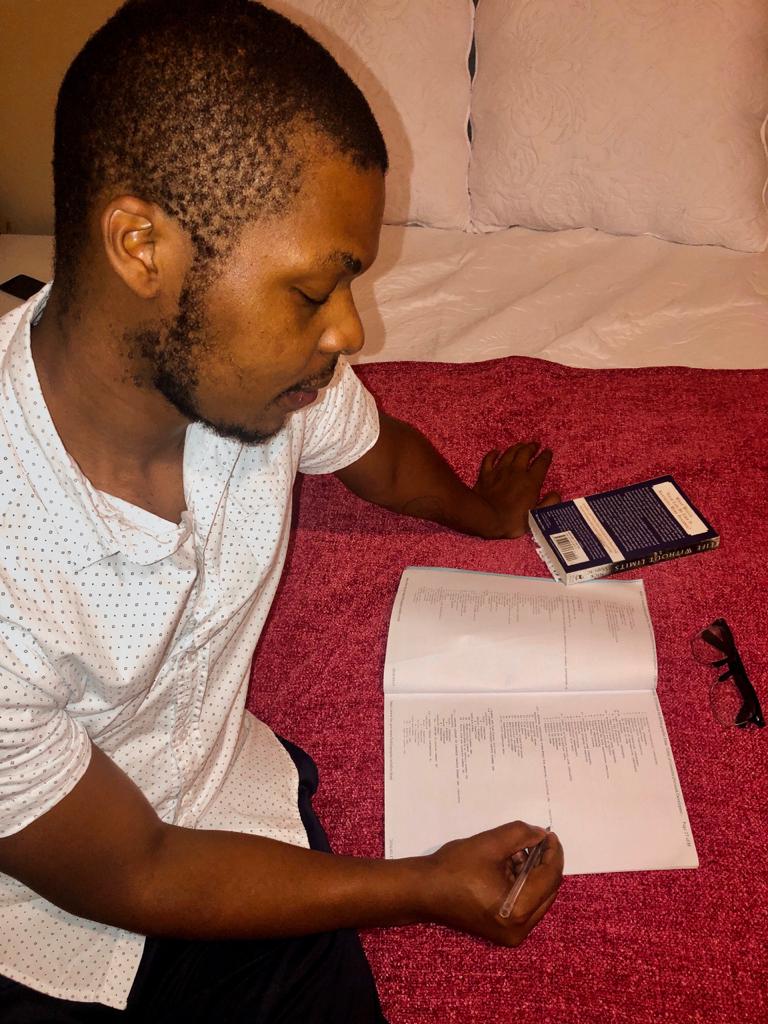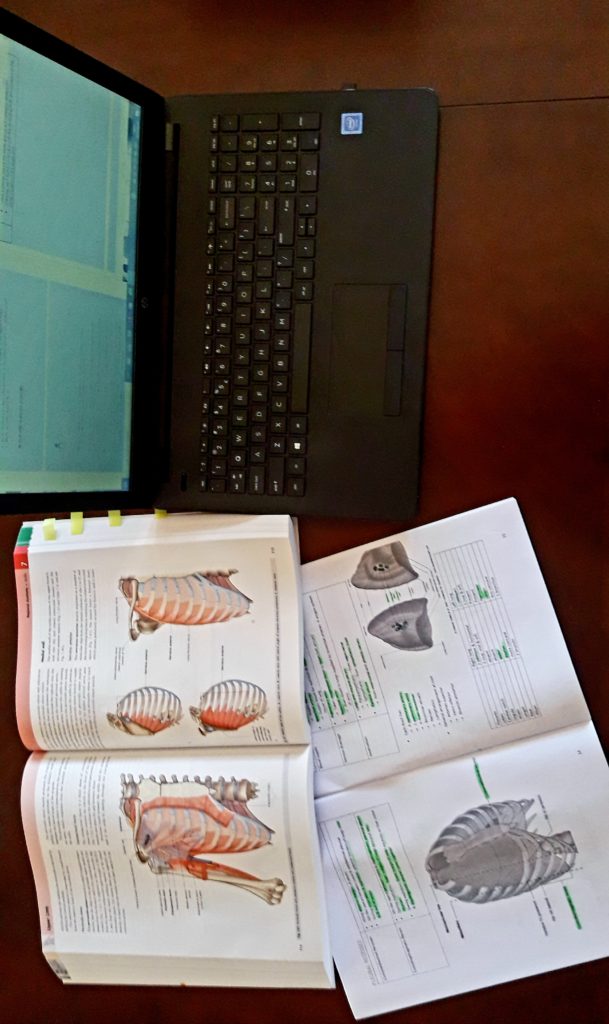Most universities in South Africa have taken their academic programme online. Even with support from these institutions to students, it hasn’t been an easy process. Two students describe how they are navigating online learning in the midst of the COVID-19 pandemic.
During a press briefing on May 23, higher education minister Blade Nzimande said their sector has adopted the theme: Save The Academic Year, Save Lives. Nzimande said that under level three of the lockdown, a third of students would be allowed to return to campus. The rest would need to start and continue with online learning.
Siyabonga Shazi, Information Studies at the University of KwaZulu Natal, postgraduate

My name is Siya and I’m studying information systems at UKZN. The online learning programme started at UKZN just after the lockdown began at the end of March. There were internal ways each school and faculty initiated to ensure that learning continues despite the situation. As time went on there were other integrated strategies introduced by the management which covers everyone to ensure that nobody would be left out.
With UKZN specifically, there really has been challenges with data. They gave us 500 mb only for us to find out that this is limited to certain specific sites like Central. It doesn’t cover the other sites you will need to explore. I have to use data to download articles online, to go into Youtube to watch a video so that I can have enough information that will help me in order to be ready to write something that is conducive for an academic paper.
I am sure everyone was not ready because this has never happened before. That on its own has been a challenge – having to adjust to something that you never expected to happen where your movement is limited. Being home and wanting to study but then being disturbed by the kids making noise makes it difficult to concentrate.
Sometimes I want to study at the library but I can’t go there because of being restricted with movement. It’s been a serious issue and it’s been a concern.
I think it’s how socially and psychologically we are not ready. The psychological impact of it has really not been discussed. It’s affecting me. Nothing has been said by doctors and mental health people to ensure that such things are spoken about and what are the avenues and ways that can be used and put in place to ensure that something is dealt with and not ignored.
We were not ready for this and it shows that we are behind in terms of ensuring that everyone has a laptop and Wifi and free data wherever they are. It’s a national question more than it is a university question. Within universities, ensuring that every student gets laptops would have a positive impact.
Secondly increasing data is really a thing. There should be funds just going to ensure that everyone is covered with data so that there is no student complaining about limited data and not having a laptop to study. There is a lack of leadership and coming together to ensure that there is a solidarity fund where there will be funds for people who are being affected by the pandemic. I think it’s an issue of leadership and not really being serious about those who are affected.
It has been difficult for me personally due to limited data and not being funded. I had to move out from res where there was wifi. After that having to get WiFi was a serious challenge. I had to try by all means. Even though it wasn’t allowed to move around, when I would go to the shop I would go with my phone to download as many articles as possible so that I wouldn’t use as much data to download. I would try to find those spots where I could use WiFi to quickly download those articles so that when I’m in the house I’ll have as much as possible.
Government should have a specific package which is going to ensure that funding is put into all tertiary institutions where learning is taking place. Online learning isn’t really the issue. It’s the lack of resources and readiness towards that and the only way is to ensure that you bring resources through leadership whereby the issues are addressed.
If the government can put more funds into universities and ensure the funds are used in a proper way and that people who really need it get those, [it will help].
This caught us and it was unexpected. But I believe this is teaching us about a new world that we need to be ready for and we can be read. It’s just a matter of how we can do things right especially by the government to expand resources and grants towards universities.
I think there are lots of students who are going through a lot and don’t have anyone to speak to. Those students are suffering in silence with nowhere to run to. I think that’s the most challenging thing. There are many students behind in learning and work. They’ve always seen a teacher or lecturer in front of them or someone to study with but due to this they are alone. I think that’s where the biggest challenge is.
This is the time for people to love one another and reach out and ask if you are coping and you doing well. I think that’s where we are lacking as well. We are lacking in resources but also lacking in reaching out to others. We lack how to use that which we have to motivate those in serious need and to ensure there is no one left feeling as if this is the hardest time the world has ever had.
Njabulo Mhlambi, Dentistry at Wits University, first year

My name is Njabulo Mhlambi and I’m currently studying dentistry at Wits. My journey with online learning has been an up-and-down one. It fluctuates a lot. My day typically starts at 6:00 to 7:30. That’s when I will wake up. I then eat breakfast or exercise. At 9:00, I start with my schoolwork and everything to do with my academics.
All the lecture notes and the files are posted at the beginning of the week. For some modules, it’s easier to do them in one day, and the work they post is not a lot. You can go through that work quickly, and have everything done ready within a day.
For other modules there’s like a lot of work and you have to go through the notes and the actual textbook because the notes can’t actually summarise the textbook. So for those subjects where you have to use a textbook and the notes it’s quite overwhelming. You don’t know how much work you can get done before the next load is given to you so you’re actually under pressure to finish a lot of work. It was very difficult to get used to the cycle of doing that work.
There is a Q&A session if you have questions but for someone who doesn’t know the work by Tuesday, you must know that you don’t know the work. It’s very fast paced and it’s not the usual pace that we would have gone through if you were actually on campus.
So besides the notes, they also put out quizzes. So these quizzes come on a weekly basis. So as a weekly basis, if they give us this week’s workload let’s say this Monday, they give us our workload for the week. Next week Monday, you would be required to have done a quiz.
I’m not against the quiz but the problem with this quiz is the timing when you take this. You are basically planning your work and learning it to do those quizzes. If those quizzes were in one timeframe, if you didn’t plan well or don’t understand the work, you have three quizzes. That’s a lot of pressure. Under normal circumstances, you wouldn’t be put under that much pressure. First it was for gauging understanding and now it’s for marks.
Another problem with these quizzes is that personally where I live the network connectivity is not good during the day. A lot of people I assume are online or use their phones and it’s crowded. There’s quick connectivity at midnight or in the early hours of the morning. So when I have to do these tests, I have to set an alarm and wake up.
Imagine the early hours of the morning, you wake up, your brain is not even in the mood to actually do a test. It’s kind of something you have to adapt to. Your brain is not even in the right headspace to be regurgitating knowledge you had just acquired. It’s kind of difficult but I’ve adapted and it’s worked for me.
But the big thing for me to understand is that we used to be at school for more than six hours. We dedicated more than six hours of our day to academics. Now that we are home, we’re not dedicating more than six hours to our academics, but we expect to have the same workload done. People are not applying the same amount of time that they used to in school. It’s not their fault. They have other people to take care of.
With regard to my mental health and physical health, it has taken a lot of time to change my mindset to schoolwork with my attitude towards schoolwork. A lot of the time, you may feel like you’re lazy and you may feel like you don’t want to do it. A big obstacle that I have faced is there are so many distractions. You have to get certain tasks done before the end of the day.
Not knowing when this quarantine will end, I think it’s something we all have to get used to now, because things may continue this way. I think it’s something we need to investigate further. Is it actually working for us? As difficult as the journey has been, it’s something that I have progressed in and I hope everyone will later progress in or has progressed into it.

![person typing on computer [slider]](https://www.thedailyvox.co.za/wp-content/uploads/2016/08/student-849825_640.jpg)







